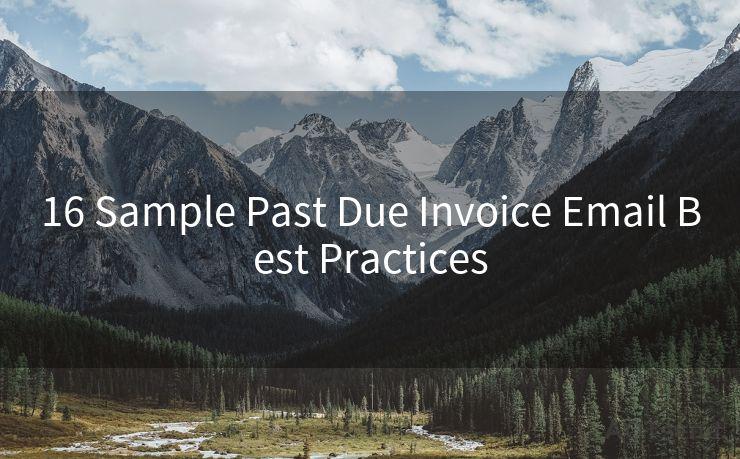16 Sample Past Due Invoice Email Best Practices




When it comes to managing invoices, one of the most challenging aspects is dealing with past-due invoices. Sending effective reminder emails becomes crucial to maintain healthy cash flow and good client relationships. Here are 16 best practices for crafting past-due invoice emails that get results.
1. Clear Subject Line
Start with a clear and direct subject line that immediately identifies the purpose of the email, such as "Past Due Invoice Reminder: Invoice #1234."

2. Professional Tone
Maintain a professional and courteous tone in your email. Avoid sounding accusatory or aggressive, as this could alienate your client.
3. Detailed Invoice Information
Include all relevant invoice details, such as the invoice number, date, and total amount due, to ensure there's no confusion about the payment request.
4. Payment Deadline
Specify a clear payment deadline in your email, giving the client a reasonable timeframe to make the payment.
5. Multiple Payment Options
Offer multiple payment methods to accommodate different client preferences, such as credit card, bank transfer, or even checks.
6. Direct Links or Buttons
Include a direct link or button to the payment portal or online invoice to make it easier for clients to complete their payments.
7. Personalized Messaging
Personalize the email by addressing the client directly and thanking them for their business. This adds a human touch and can improve response rates.
8. Reminders of Late Fees
Mention any late fees or penalties that may apply if the invoice remains unpaid after the deadline, but do so in a non-threatening way.
9. Follow-Up Plan
Have a clear follow-up plan in place, including sending additional reminders if necessary and escalating the matter if payment is not received.
10. Contact Information
Provide your contact information in case the client has any questions or needs assistance with payment.
11. Use Templates Wisely
While templates can save time, ensure you customize them enough to maintain a personal touch and avoid sounding robotic or impersonal.
12. Avoid Spam Filters
Be mindful of spam filters when crafting your emails. Avoid using too many trigger words that might flag your message as spam.
13. Testimonials or Reviews
Including positive testimonials or reviews from satisfied clients can sometimes encourage delinquent payers to settle their invoices promptly.
14. Polite Persistence
Be polite but persistent in your communication. A friendly reminder can often yield better results than a stern demand.
🔔🔔🔔
【AOTsend Email API】:AOTsend is a Managed Email Service for sending transactional emails. Support Email Types: reminders, authentication, confirmations, notifications, verification codes, invoices, password resets, account activations, billing statements, two-factor authentication (2FA), and one-time passwords (OTP) emails, etc. $0.28 per 1000 Emails. 99% Delivery, 98% Inbox Rate.
You might be interested in:
Why did we start the AOTsend project, Brand Story?
What is a Managed Email API, How it Works?
Best 25+ Email Marketing Platforms (Authority,Keywords&Traffic Comparison)
Best 24+ Email Marketing Service (Price, Pros&Cons Comparison)
Email APIs vs SMTP: How they Works, Any Difference?
15. Legal Considerations
Ensure your emails comply with relevant legal requirements, such as including opt-out options for future communications and adhering to privacy laws.
16. Tracking and Analytics
Utilize email tracking and analytics tools to monitor the effectiveness of your emails and make adjustments accordingly.
By following these best practices, you can increase the likelihood of collecting on past-due invoices while maintaining positive relationships with your clients. Remember, effective communication is key to successful invoice management.




Scan the QR code to access on your mobile device.
Copyright notice: This article is published by AotSend. Reproduction requires attribution.
Article Link:https://www.mailwot.com/p5814.html



